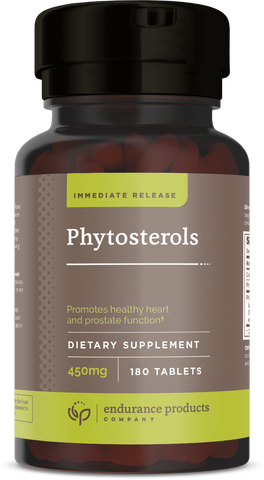High blood pressure, diabetes, a family history of heart attacks. That’s an obvious list of issues that up your chances of a heart attack. But did you know there are several surprising risks you might never have thought of?
Here are three lesser known risks that may shock you. (And stay tuned for something even more surprising that may help.).
1. Heartburn meds
People sometimes mistake a heart attack for heartburn. But one study found that taking certain heartburn medications on a regular basis may actually put you more at risk for a heart attack. Researchers at Stanford University School of Medicine used a method known as “data mining,” where they looked at a large amount of data from nearly 3 million adults. They found that those who took proton-pump inhibitors for gastroesophageal reflux disease (like esomeprazole or omeprazole) were up to 34 percent more likely to suffer a heart attack compared to those who weren’t using the meds. Interesting to note, those who took H2 receptor blockers for acid reflux (like ranitidine), were not at greater risk.1
2. Going out into the cold
You’ve probably heard stories of people who have suffered a heart attack while shoveling snow. Blame the strain that lifting hundreds of pounds of snow after doing no exercise for months puts on the heart.
But there’s more. Cold air can cause the blood vessels to clamp down, decreasing the supply of oxygen-rich blood to the heart. Combining the two: A heart that’s forced to work harder than it’s worked all year with a lower supply of oxygen at the ready, and you can be looking at a deadly mix.
3. Turning the clocks forward
An extra hour in either direction doesn’t seem like a big deal. But to your heart, it can be. American College of Cardiology research combed through hospital admissions data and found the Monday after daylight savings time starts in the spring (after losing an hour), the number of heart attacks jumped by 25 percent compared with other Mondays during the year. Interestingly, on the Tuesday after turning the clocks back in the fall (thus gaining an hour), the number of heart attacks decreased by 21 percent.2
Researchers don’t know the exact cause, but it may be due to the stress of the new work week coupled with lack of sleep and changes in our sleep-wake cycle.
So now that you’re aware of some surprising (and bizarre) ways that can raise your risk, here’s a surprising way that may reduce your heart disease risk: Add phytosterols to your diet.
Phytosterols, also known as plant sterols, are a group of compounds naturally found in the cell walls of plants. Their chemical structure is similar to dietary cholesterol, so they compete with real cholesterol for absorption in the gut when we eat them. Because of that, they block the absorption of dietary cholesterol, helping to lower the blood level of cholesterol. Once inside the walls of the intestine, the body doesn’t recognize phytosterols, so they’re returned back to the digestive tract and excreted out of the body along with the real cholesterol.
Research is truly proving their power. In one extensive meta-analysis of 41 studies, researchers found that participants who took phytosterols in the range of 700 to 1,100 mg/day lowered their “bad” LDL cholesterol by about seven percent, on average.3
The bad news: The phytosterols in foods occur in very small quantities, which explains why the typical diet contains as little as 170 mg/day of plant sterols. That’s why we formulated EP Phytosterols 450 mg. When taken as directed, these easy-to-swallow tablets may help reduce heart disease risk.**
And these aren’t just any phytosterols. EP Phytosterols is formulated for immediate release. One tablet before a meal allows the phytosterols to quickly enter your digestive tract where they go to work blocking the absorption of cholesterol in the foods you eat.*
No surprises here, just a simple solution with serious benefits for heart health … that you can start today.
About Endurance Products Company
Endurance Products Company has been a trusted source of quality dietary supplements since 1978. Our sustained-release and extended-release tablets feature a unique vegetable wax matrix that releases nutrients in a slow, steady manner over a period of hours for optimal nutrient absorption and retention.
References
1. Shah NH, LePendu P, Bauer-Mehren A, et al. Proton pump inhibitor usage and the risk of myocardial infarction in the general population. PLoS One. 2015 Jun 10;10(6):e0124653. PMID: 26061035.
2. Sandhu A, Seth M, Gurm HS. Daylight savings time and myocardial infarction. Open Heart. 2014 Mar 28;1(1):e000019. PMID: 25332784.
3. Ostlund RE Jr. Phytosterols in human nutrition. Annu Rev Nutr. 2002;22:533-49. Review. PMID: 12055357.
4. Katan MB, Grundy SM, Jones P, et al. Efficacy and safety of plant stanols and sterols in the management of blood cholesterol levels. Mayo Clin Proc. 2003;78:965-978. PMID: 12911045.
* These statements have not been evaluated by the Food and Drug Administration. This product is not intended to diagnose, treat, cure or prevent any disease.
**Foods and supplements containing at least 400 mg per serving of plant sterols, eaten twice a day with meals for a daily total intake of at least 800 mg, as part of a diet low in saturated fat and cholesterol, may reduce the risk of heart disease. A serving of EP Phytosterols supplies 450 mg of phytosterol

